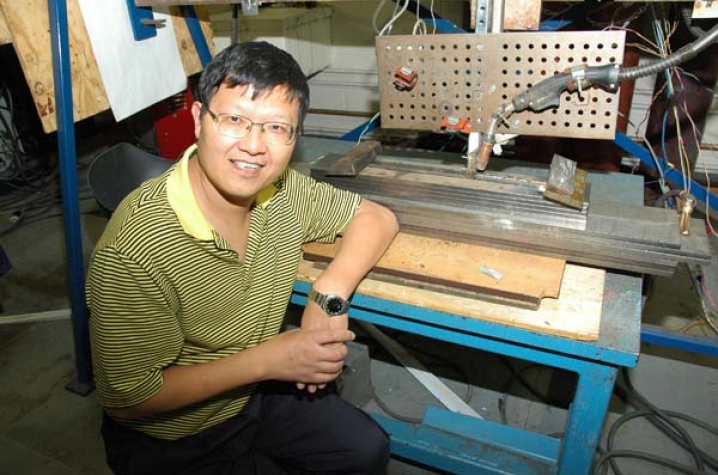Exploring Ways to Improve Welding

LEXINGTON, Ky. (Sept. 11, 2009) -- YuMing Zhang was a graduate student in China when a friend told him about issues involving welding metals.
"He told me welders need very accurate control to achieve quality welds, but that it is difficult," Zhang said. "If the quality does not meet the specification requirements, the welders have to come back and do it again."
His curiosity piqued, Zhang began pursuing research in welding as an expertise.
Today, the electrical and computer engineering professor at the University of Kentucky Center for Manufacturing is developing computer software to control what up until now has been a labor-intensive welding process.
"By using this computer program, the machine can determine if welders are achieving good quality welds. The computer program replaces skilled welders and makes decisions, so less-skilled workers can do what skilled welders do.
"This is speeding and improving welds, and it permits the use of less skilled welders, so both productivity and profitability are increased," Zhang said.
Zhang's research in this area is funded by two National Science Foundation grants -- one for $288,000, another for $352,000. They support his fundamental research into the behavior of weld pool surfaces -- that is, the melted metal generated by the welder's arc -- and make possible his practical efforts to use computers to monitor and control the quality of welds while precisely measuring the weldable surfaces of metals being joined.
His software and hardware currently are being tested by shipbuilding welders and are being closely observed by U.S. shipyards.
"Based on the feedback we get, we'll make modifications to the program. Once they say the technology is good, we expect its use to be widely adopted," Zhang said.
Zhang's research at UK -- which began when he came as a visiting scholar in the early 1990s and continued after he joined the College of Engineering faculty -- brought him to the attention of the American Welding Society.
The AWS will induct Zhang as a Fellow this November, recognizing his distinctive contributions to advancing the science, technology and application of welding and allied processes, including joining, brazing and soldering, and cutting and thermal spraying metals.
"This work may revolutionize the way welders work," Zhang said.




